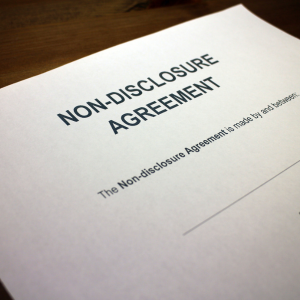
Top Real Estate Markets in Edmonton, Alberta
The real estate market in Edmonton, Alberta, is still varied and challenging, especially when selling homes damaged by water. If you know where demand is highest, where you place a distressed home makes a big difference. People are always interested in Downtown Edmonton, Strathcona, and Glenora because of their location, services, and lifestyle appeal. People willing to make improvements or looking for business opportunities in central areas are most likely to be interested in these areas.
Sellers with water-damaged homes in these neighborhoods should highlight potential—whether that’s redevelopment space, architectural uniqueness, or the chance to restore character. Oliver and Westmount are also popular because they have a mix of old-fashioned charm and modern conveniences, which makes them great places to fix up old homes. Instead of trying to hide the problems, selling these homes as “blank slates” with potential for future value can work well with some people. Knowing these small markets well, sellers can focus more on homes that need work but still have a lot of promise.
Understanding the Impact of Water Damage on Property Value
If you want to sell a house with water damage, you must know how it affects the property’s value. People in Edmonton are careful around water problems because they are often signs of bigger issues, like mold, building decay, or a lot of work that needs to be done over time. These worries make people hesitant, which can cause offers to drop or the property to stay on the market longer.
Insurance records or obvious signs of water damage in the past are usually red flags. Sellers should be honest and ready to explain what they’ve done to fix the problem. Providing receipts, inspection reports, or warranties can ease buyers’ concerns and support your asking price.
Even when the damage is evident, water issues can make a property feel less valuable at first glance. However, you can still draw serious buyer interest with the right marketing approach, such as positioning it as a fixer-upper opportunity or pricing it attractively. Understanding how water damage impacts value in Edmonton’s competitive housing market allows sellers to price more strategically and plan effectively for the sale. Sunrise Home Buyers is here to help you navigate this process and present your property in the best possible light.
Essential Repairs Before Listing a Damaged Home
Before putting a water-damaged house on the market in Edmonton, handling key repairs is not just smart—it’s necessary. People don’t want to buy homes with problems that haven’t been fixed, so fixing the most critical issues first can significantly increase your chances of selling. First, take care of anything that could affect safety or comfort, like fixing the structure, updating the electricity, or fixing the plumbing.
One of the most important steps is preventing further water intrusion. That might mean sealing basement walls, fixing a leaking roof, or upgrading gutters and drainage systems. Mold remediation is also necessary for health concerns and buyer confidence. Even small touches like replacing warped floors or patching drywall can go a long way in changing how a buyer perceives the space.
When you’re fixing something, remember how important it is to make it look better. New paint, furnishings, and finishes can help take the focus off of past problems and on what the home could be. If buyers fix these things up before they list their homes, it shows that they’re serious, which can make a good first impression.
Strategies for Selling a House with Water Damage

If your Edmonton home has been ruined by water, you can still sell it. You just need to be smart about it. First, fix any damage that can be seen and, if possible, make big repairs. People may be more likely to buy a house that has been stabilized or partly restored, even if it’s not perfect.
Full disclosure is non-negotiable. Ensure buyers know what happened, what’s been fixed, and what might still need attention. This honesty builds trust and can help reduce the risk of post-sale issues or legal disputes. Another effective strategy is pricing the home to reflect its current condition while leaving room for potential buyers to add value.
You should also lean into location or property-specific perks. Make those elements part of your selling story if it’s in a popular neighborhood, near transit, or has a large yard. And don’t skip the marketing. High-quality photos and strong descriptions can help highlight opportunities instead of damage. Working with a knowledgeable real estate professional can also help tailor your approach to Edmonton’s market realities.
Legal Considerations When Selling a Water-damaged Property
In Edmonton, selling a home ruined by water takes more than cleaning up and putting it on the market. It also requires careful legal work. In Alberta, sellers must tell buyers about any known material flaws, such as water problems that happened in the past or are happening now. If you skip this step, you could face significant legal consequences, such as lawsuits or fines, after the sale.
It’s smart to have a recent professional inspection report on hand. Not only does it show that you’re being transparent, but it also helps establish credibility and protects you during negotiations. Consider hiring a legal professional with experience in real estate transactions to help manage disclosures, review documents, and ensure you meet all provincial requirements.
You’ll also want to check your insurance history, zoning laws, and whether any ongoing claims might affect the transaction. Some buyers may ask about restrictions related to renovations or whether a permit is needed for previous repairs. Covering your legal bases early can make your sale smoother and lower your risk once the deal is closed.
How to Negotiate Price Reductions on Damaged Properties
Preparing and talking to people are needed to negotiate price drops on Edmonton homes damaged by water. Start by thoroughly inspecting and getting quotes from qualified contractors for the repairs. These numbers give you a reason to make a lower offer based on real costs, which you can use as power when negotiating prices.
Pointing to comparable sales of similar properties—especially those needing repair—strengthens your case. Data from the market is essential, and showing how similar homes sold for less because of their condition can help you make your case. In the same way, it’s necessary to be honest about the harm. Telling buyers about the house’s flaws and how they might be fixed builds trust and makes them feel good about going forward.
Also consider framing the discount as an investment opportunity. Bring up any benefits, like the size or location of the lot, that will still be useful after renovating. Even if the property needs a lot of work, sellers can keep negotiations going smoothly by showing that they are flexible and giving facts to support their price strategy.
Finding the Right Buyers for Distressed Properties in Alberta
When selling a water-damaged home in Edmonton, your success often depends on finding the correct type of buyer. Most of the time, that means focusing on real estate owners and buyers who want to fix up homes and are actively looking for properties that need work. Damage doesn’t bother these people; they often see it as a chance to improve things.
Marketing should emphasize what’s possible rather than what’s wrong. Showcase the property’s location, lot size, or architectural uniqueness. Buyers in this space typically seek a return on investment, so use your listing to point out the home’s post-repair potential. This might include rental income possibilities, resale projections, or redevelopment options.
You can connect with serious buyers through investor websites, local wholesaling networks, or Alberta-based real estate groups. Real estate professionals who work with distressed properties often have direct access to buyers looking for homes in any condition—we’re here to help make the process easier, and we buy houses in Edmonton as-is.
Home Inspection Tips for Sellers in Challenging Markets
A proper home inspection can make or break your listing when dealing with a water-damaged house in Edmonton. Before you put your house on the market, set up a pre-listing check with a certified home inspector who knows the building codes and environmental issues in your area. This will help you see what needs to be fixed and avoid buyer worries.
Use the inspection report as a list to decide which fixes or upgrades are most important. Even if you don’t fix everything, telling the buyer what was found up front shows that you’re honest and keeps them from being surprised during the check. Also, it’s a good idea to keep track of any papers or other proof of past repairs for water damage, since buyers will want to know what was fixed.
In Edmonton’s competitive market, where weather and older housing stock often create issues, proactive inspections help avoid deal-breakers. Buyers are more likely to move forward confidently when they know what to expect, making your property stand out even in a challenging market.
The Role of Insurance in Selling Water-damaged Homes
Insurance plays a bigger role than many sellers realize when listing a water-damaged home in Edmonton. If your policy covered any of the damage, having documentation of claims and completed repairs can significantly boost buyer confidence. It shows that steps were taken to correct issues professionally, not just cosmetically.
An open claim can even help you sometimes. If repairs are still being done or were just finished, buyers may be willing to pay more if they know the work was done with insurance company guidance. It also gives you room to offer extras like warranties that can be transferred or incentives to get buyers to move forward, like paying some of the closing costs.
Before selling, sellers should look over their policy. Find out what has been and has not been claimed and determine if the deal will affect their premiums or coverage. A real estate agent who knows the Edmonton market well can help with insurance issues and ensure that your paperwork fits what the buyer wants and what is expected in the area.
Staging Techniques to Highlight Potential in Flawed Homes
Staging a water-damaged home doesn’t mean hiding its issues—it means focusing on the home’s strengths and potential. Buyers in Edmonton may be cautious, but with the proper staging, they can see what they can do with the room instead of what they will lose. First, clean it thoroughly and eliminate any trash or signs of water damage from before. Then, use light-colored decorations and furniture to make the room feel bigger and friendlier.
Use lighting to draw attention to things not water-damaged, like original woodwork, oversized windows, or open floor plans. Plants, rugs, and carefully placed furniture can also make rooms feel warmer and cozier after repairs.
Set up “lifestyle zones” like a cozy reading nook or efficient home office to help buyers visualize how they could use the space. Small details like fresh paint, clean scents, and thoughtful furniture placement can change a buyer’s perception of a home that needs work. Staging can make your property feel like an opportunity, not a risk.
Common Buyer Concerns When Purchasing Water-damaged Homes
When buyers consider water-damaged properties in Edmonton, they often come in with grave concerns—sellers must be ready to address them. One of the most common worries is hidden structural damage. Even after repairs, buyers may fear that mold, rot, or foundational issues could resurface. This fear is often compounded if past damage wasn’t professionally remediated or documented.
Another primary concern is cost. Buyers want to know how much additional work the home will require, and whether they’ll be hit with surprise expenses after closing. That’s why providing detailed inspection reports and contractor estimates can go a long way in easing those fears. It shows the seller has done their due diligence and isn’t trying to offload a problem property.
Buyers also consider how much the house will be worth when they want to sell it. If the past of water damage isn’t adequately dealt with, it could make the house harder to sell. By being honest and showing proof of proper fixes, sellers can help buyers see the long-term value and feel confident about going through with the purchase again.
Can I Sell My House If It Has Water Damage?
You can sell your house even if it has water damage, but you must plan and take the proper steps. The first thing that should be done is to have a professional look at the damage and tell you how bad it really is. This helps you choose what to fix and what to leave up to the buyer. It also helps you set a reasonable selling price that is in line with the house’s current condition.
Being upfront about the damage is essential. Buyers appreciate honesty, especially if they’re investors or handy homeowners looking for renovation projects. Highlight the home’s redeemable qualities—location, lot size, architectural details—and market the property with clear photos and a compelling description that focuses on potential.
If making major repairs isn’t in the cards, selling your house as-is can still be a smart move—mainly if you focus on cash buyers who are used to taking on homes that need work. Partnering with a real estate professional who can market damaged properties can make all the difference. They’ll help you connect with serious buyers and ensure a smoother, faster selling experience. If you want to sell your house fast in Sherwood Park, this approach can help you move forward without the stress of costly renovations.
How Long Are You Liable After Selling a House in Alberta?
In Alberta, your liability as a seller doesn’t end when the home changes hands, especially if the property has known defects like water damage. Under provincial law, sellers must disclose all known material issues, and failure to do so can result in legal action even after the sale is finalized.
The Alberta Limitations Act says that the liability time is usually up to two years. During this time, a buyer may be able to sue you if they find out that you hid or failed to tell them about a significant defect. That’s why keeping many records, like inspection reports, fix receipts, and forms the buyer fills out, is essential.
To protect yourself, conduct a thorough pre-sale inspection and work with professionals to help you correctly manage the paperwork. Full transparency keeps you in compliance and builds trust and helps avoid costly disputes down the road.
How Much Does Water Damage Devalue a House?

A home’s value can drop a lot if it gets water damage. This is especially true in Edmonton, where the weather can worsen these problems. Depending on how bad the damage is and whether fixes have been made, water damage can lower a home’s market value by 10% to 20% on average. When making an offer, buyers usually think about how much it will cost to fix things, how dangerous the property could be in the future, and how reliable the insurance company is.
The bigger the issue—such as mold, foundation damage, or compromised electrical systems—the more it affects buyer confidence and final pricing. That’s why it’s important to assess the damage and document any completed remediation efforts to show that the home has been professionally stabilized.
Sellers should be prepared to fix key issues or offer a lower price that reflects the work still needed. A competitive listing that acknowledges these challenges while promoting the home’s strengths—like location, lot features, or long-term potential—can still draw serious interest, especially from investors or buyers looking for a project.
Should I Sell My Water-damaged House As-Is or Make Repairs First?
Your schedule, budget, and goals will help you decide whether to sell your water-damaged house “as-is” or make repairs. If you want to close fast or avoid upfront costs, selling as-is can be a good option. This is especially true in Edmonton’s competitive market, where investors are actively looking for homes that need work. You may have to lower your price because there is still work to be done.
On the other hand, making key repairs—such as fixing leaks, remediating mold, or restoring damaged flooring—can improve your home’s appeal and increase your chances of getting stronger offers from a broader range of buyers. Even minor improvements like repainting or updating fixtures can make a noticeable difference in the property’s appearance.
If you’re feeling uncertain, a balanced approach might be your best bet—take care of the most essential repairs and be upfront about the rest. This way, you can confidently present your property while allowing buyers to personalize it. Clear documentation and honesty can make a big difference in earning buyer trust. If you’re ready to move forward, contact us today—we’re here to help you confidently sell.
Helpful Edmonton Blog Articles
- Sell Your Edmonton, AB, Home With Foundation Problems
- How Much Does It Cost To Sell A House In Edmonton, AB
- Contingency On Selling House In Edmonton, AB
- Capital Gains Tax On Selling Your Edmonton Home
- Selling a Tenant-Occupied House in Edmonton, Alberta
- Guide to Filing a Quitclaim Deed in Edmonton, Alberta
- Can You Sell a House with a Lien in Edmonton, Alberta?
- Selling A Water-damaged House In Edmonton, AB
- Selling A Home In Edmonton, AB: Navigating Squatter Challenges
- Selling an Apartment in Edmonton, AB
- Can you sell an Edmonton House AS-IS?

| LATENT DEFECTS | SUING | LITIGATION | INVESTMENTS | HVAC | HVAC SYSTEMS |
| LEGAL COUNSEL | EVIDENCE | FURNITURE | FEES | EXPENSES | |
| COMPENSATION | ACTUAL DAMAGES | CANADIAN | CANADA | MONEY | HEALTH |
